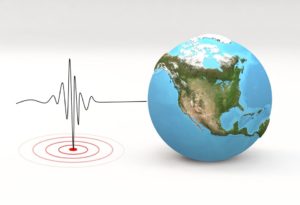Weathering the Storm with Commercial Metal Buildings
 Commercial metal buildings carry all sorts of advantages, from the fact that they’re good for the environment, to their ability to blend with virtually any aesthetic. With Atlantic hurricane season spanning June 1 to November 30 — and Mother Nature’s tendency toward the unpredictable — the idea that they can stand up against adverse weather is another thing they have going for them. What conditions are metal buildings built for? Read on to find out.
Commercial metal buildings carry all sorts of advantages, from the fact that they’re good for the environment, to their ability to blend with virtually any aesthetic. With Atlantic hurricane season spanning June 1 to November 30 — and Mother Nature’s tendency toward the unpredictable — the idea that they can stand up against adverse weather is another thing they have going for them. What conditions are metal buildings built for? Read on to find out.
Commercial Metal Buildings Hold Their Own Against Earthquakes
It’s a common misconception that heavier structures are safer when earthquakes move in. As Building Design & Construction notes, extra building weight can actually work against you. When heavier buildings get jostled around, it puts added force (and stress) on the various elements and tends to result in more damage. Lighter steel construction doesn’t have that problem. In fact, as Metal Construction News reports, extensive testing has been carried out on metal buildings to evaluate and improve upon their ability to withstand seismic scenarios. In all likelihood, these structures, which already offer safety benefits when earthquakes strike, will become even safer as time and technologies progress.
Commercial Metal Buildings Stand Strong in Hurricane Conditions
Although there’s no such thing as a hurricane-proof building, there are ways to reinforce structures so they can hold their own against strong winds. In terms of metal buildings, that means incorporating Florida approved products into your designs. Florida approved metal building accessories are enhanced versions of the wall louvers and ridge vents found in most steel buildings, and they’re engineered specifically for areas regularly hit with hurricanes. These products undergo extensive third-party testing and audits, and they’re approved for use by the Florida Building Commission.
(For specific examples of Metallic Products’ Florida approved product offerings, click here.)
Commercial Metal Buildings Are Ideal for Flood-Prone Areas
Steel’s inorganic nature means the structural materials that make up a metal building are less likely to experience mold growth — and, even if they do, they won’t corrode. In addition, that non-porous steel also means the structure will remain strong even when faced with standing water. If moisture does make its way into insulation, or if physical damage occurs to the structure’s exterior elements, repair work tends to be quick and fairly affordable.
(Curious to learn more? We have an entire blog post focused on metal buildings in flood zones.)
Storm conditions tend to raise concerns for every building owner out there. Rest assured that, if you operate out of a metal building, you’re likely in good hands. If you have questions on any of the above, are interested in learning more about our Florida approved products — or any other Metallic Products metal building accessory — feel free to reach out. Our team is always happy to help.



 Commercial metal buildings carry all sorts of advantages, from the fact that
Commercial metal buildings carry all sorts of advantages, from the fact that